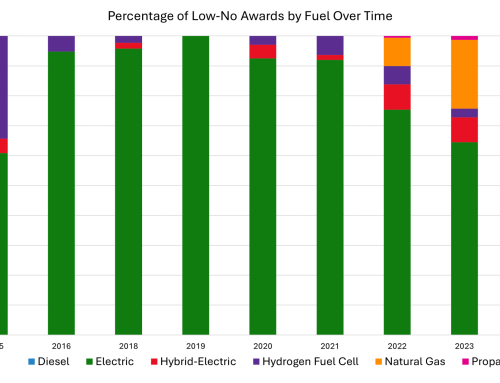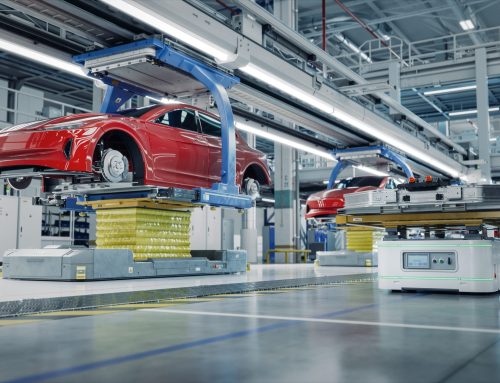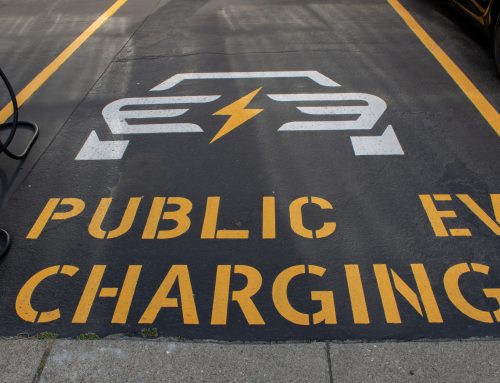
Source: Transportation and Infrastructure Committee
On April 30, 2024, Atlas founder Nick Nigro was a witness for a hearing of the U.S. House of Representatives Committee on Transportation and Infrastructure, Subcommittee on Highways and Transit. The hearing, It’s Electric: A Review of Fleet Electrification Efforts, covered a wide range of topics related to transportation electrification.
Read Nick’s opening remarks below:
“Chair Crawford, Ranking Member Norton, and members of the committee, thank you for the opportunity to speak today about the electrification of U.S. transportation. My name is Nick Nigro, and I am the founder of Atlas Public Policy, a policy and data research firm based right here in Washington, DC. Atlas equips businesses and policymakers to make strategic, informed decisions that serve the public interest. We build analytical tools and dashboards using accessible technology and offer advisory services to tackle the pressing issues of the day, with a particular focus on transportation electrification.
I greatly appreciate the opportunity to speak to you about the most important transportation challenge we face in this century. For more than one hundred years, powering our transportation system has depended largely on the extraction, refinement, and burning of petroleum-based products to move goods and people throughout our road network.
In the last 15 years, our innovative businesses, with support from all levels of government and civil society, have made great strides to take on a once-in-a-century challenge to transition the country off oil to a more sustainable, secure, and economical fuel, electricity.
Make no mistake. This transition will take decades to complete, but we have too much at stake to sit on the sidelines and lose the future of mobility to our competitors in China and Europe, which collectively made up 85 percent of global EV sales in 2023.
The Alliance for Automotive Innovation estimates that the automotive sector supports nearly 10 million jobs and over $700 billion in worker income every year in the United States. Nearly 65 percent of car and light truck sales in 2023 were from companies who have committed to electrify all their vehicle offerings by 2035 or 2040. And the International Energy Agency estimates that global EV sales could reach 17 million in 2024, more than all passenger vehicles purchased in the United States last year.
Passenger vehicles often steal the headlines, but truck and bus electrification are well underway as well. By 2040, the three truck manufacturers that make up 70 percent of the medium- and heavy-duty market—Daimler Truck, Volvo Group, and Navistar—aim to sell only zero emission vehicles. These manufacturers, along with large national fleets, logistics companies, charging infrastructure developers, and electric utilities, formed PACT, a comprehensive coalition focused on one of the most critical barriers to accelerating the uptake of zero emission commercial vehicles: the deployment of medium- and heavy-duty truck zero emission charging and refueling infrastructure.
We aren’t just racing against foreign nations to lead the development of 21st century vehicle technology. We’re also in a race to mitigate the worst effects of climate change on the planet and tailpipe pollution on human health. The American Lung Association estimates that transitioning trucks to zero emission could lead to $735 billion in public health benefits and more than 65,000 fewer premature deaths by 2050. Moreover, unmitigated climate change is a looming threat to the global economy. The National Oceanic and Atmospheric Administration estimates that climate related disasters have cost us nearly $2.7 trillion since 1980, with costs significantly increasing with each decade.
Finally, in terms of the drivers to an electric future, I’d be remiss if I didn’t bring up the major factor that brought me to Washington nearly 15 years ago. You see, I studied electrical and computer engineering in the late 90s and took a job in the booming high-tech sector in Massachusetts in 2001. Applying my engineering education and building popular consumer products was a rewarding experience. But while I was sitting pretty in Boston, the country was in a deepening national security crisis, which I believe was driven in part by our dependence on oil. I was motivated to change the direction of my career, and my life, by going back to school, learning energy policy, and putting my engineering brain to better use. All of the evidence I’ve analyzed over the past 15 years has led me to the clear conclusion that electrifying our transportation sector is vital to our national security, and it’s near impossible to put a price tag on that.”
Read his full written testimony here, and you can watch the recorded hearing on the Committee website here.


